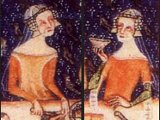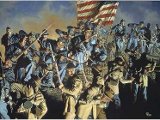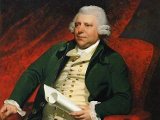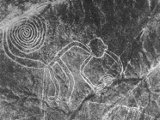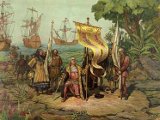Epic of Gilgamesh
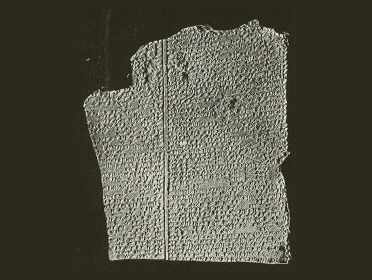
History and Discovery of the Epic of Gilgamesh
The Epic of Gilgamesh is among the first known literary works in history. The story about Gilgamesh’s adventures and quest for immortality was written after 2000 BC, while the most complete version of the epic written in Akkadian language is preserved on twelve clay tablets from 7th century BC. All twelve tablets discovered at the library of the Assyrian king Ashurbanipal (reigned c. 668-627 BC) in Nineveh in the mid-19th century are damaged but the fragments of the epic found elsewhere in the Middle East enabled the scholars to fill in the gaps in the text. The tablets from the Library of Ashurbanipal also contain the name of their author – Sin-liqe-unninni which is extremely unusual for the works written in cuneiform script.
Who was Gilgamesh
The story of Gilgamesh is a myth but it is based on an actual historical figure. The hero of the epic, Gilgamesh was king of Uruk and reigned around 2600 BC. He is also mentioned in the Sumerian King List and five Sumerian poems dating to the first half of the 2nd millennium BC: Gilgamesh and Agga of Kish; Gilgamesh and Huwawa; Gilgamesh and the Bull of Heaven; Gilgamesh, Enkidu and the Nether World; and The Death of Gilgamesh. All texts that mention Gilgamesh, however, say that he was semi-divine and that he reigned 126 years.
Gilgamesh and the Biblical Figure Nimrod
Some scholars believe that Gilgamesh may be the mighty hunter Nimrod, the son of Cush and great-grandson of Noah mentioned in the Book of Genesis. Nimrod is also credited with the founding of the city of Erech that has been identified as Uruk. However, the connection between the Biblical figure and Gilgamesh is rejected by most scholars because Gilgamesh built the walls of Uruk but he did not found the city itself. Nimrod may had been also inspired by Ninurta, the Sumerian god of war and hunting, while Biblical scholars believe that Nimrod refers to an ancient people rather than an individual.
Summary of the Epic of Gilgamesh
The Epic of Gilgamesh begins with the introduction of Gilgamesh, his ancestry and his misconduct towards the citizens of Uruk who appeal to the gods for intervention. The gods decide to create a man named Enkidu as a rival to the King of Uruk. The news of a wild man living in the forest with wild animals soon reaches the city of Uruk and a temple harlot is sent to seduce him. Then he is gradually introduced to civilization. One day, he is asked to prevent Gilgamesh to deflower a newly married woman. He goes to Uruk and blocks the king’s way which provokes a fight. Gilgamesh wins Enkidu but the two become very close friends thereafter.
The two friends decide to go to the Cedar Forest to cut down all the cedar trees but to do that they have to fight Humbaba, a monster that guards the forest. They kill the monster and cut down the trees to make a cedar gate for the city of Uruk. Goddess of love, Ishtar who is impressed by Gilgamesh’s daring undertaking makes a pass at Gilgamesh but he rejects her. Ishtar, insulted by Gilgamesh’s rejection asks her father god Anu to send the sacred Bull of Heaven to Uruk to revenge her. Gilgamesh and Enkidu kill the bull but the very same night, Enkidu has a dream that gods have decided that one of the two friends must die for killing Humbaba and the Bull of Heaven. Enkidu falls ill and dies after 12 days of suffering.
Enkidu’s death breaks Gilgamesh who then begins to fear his own death. He decides to find Utnapishtim, the man who survived the great flood and had been granted immortality to ask him about the secret of eternal life. Gilgamesh finds Utnapishtim after a long journey who tells him how he had survived the great flood and the boat he built for his family and animals. Gilgamesh is told that he must stay awake six nights and seven days and if succeeds, he will be granted immortality too. He fails but the man tells him about a plant that will give him an eternal youth. Gilgamesh finds the plant and continues his journey back to Uruk. When he stops to bath, a snake steals and eats the plant (which explains why snakes shed their skin).
The epic ends with Gilgamesh returning to Uruk inviting Urshanabi, the ferrymen who took him to Utnapishtim to view the greatness of his city. The last twelfth tablet is believed to be a later addition. It tells about Enkidu helping Gilgamesh bring back some objects from the underworld and ends with Enkidu’s spirit telling Gilgamesh about afterlife.
Similarities between the Epic of Gilgamesh and the Biblical Flood Story
Significance of the Epic of Gilgamesh primarily lays in its literary value because the story does not contain any relevant information about Gilgamesh nor history of Mesopotamia during the period of his rule. It bears, however, some striking similarities to the Biblical stories, in the first place the story of Noah’s Ark. The story about the flood that is told to Gilgamesh by Utnapishtim leaves little doubt that the Biblical account was inspired by the Epic of Gilgamesh. Both stories include the divine destruction of the humankind, both Utnapishtim and Noah are warned about the catastrophic event, both heroes built a boat and take their families and animals on board with them, both release three birds to find land and both boats sat on the top of a mountain when the flood subsided. The Epic of Gilgamesh, however, was written several centuries before the Biblical flood story.
Parallels of the Epic to the Story of Eden
The Epic of Gilgamesh also includes parallels to the Biblical story of Eden. A snake in close association with a magic plant and the element of immortality are found in both stories. Gilgamesh’s desire to find the key to immortality ends with a snake stealing a plant that restores the youth, while a snake in the story of Eden persuades Eve and then Adam to eat from the forbidden tree. When God finds out about them eating from the forbidden tree, he expels them from the Garden of Eden to prevent them access to the Tree of Life fruits of which would give them immortality. The incorporation of the snake, magic plant and immortality in both stories does not evoke immediate association but in both stories, the snake plays the key role in loss of access to youth/immortality, while the heroes of both stories in the end have to deal with the fact that they will die someday.
